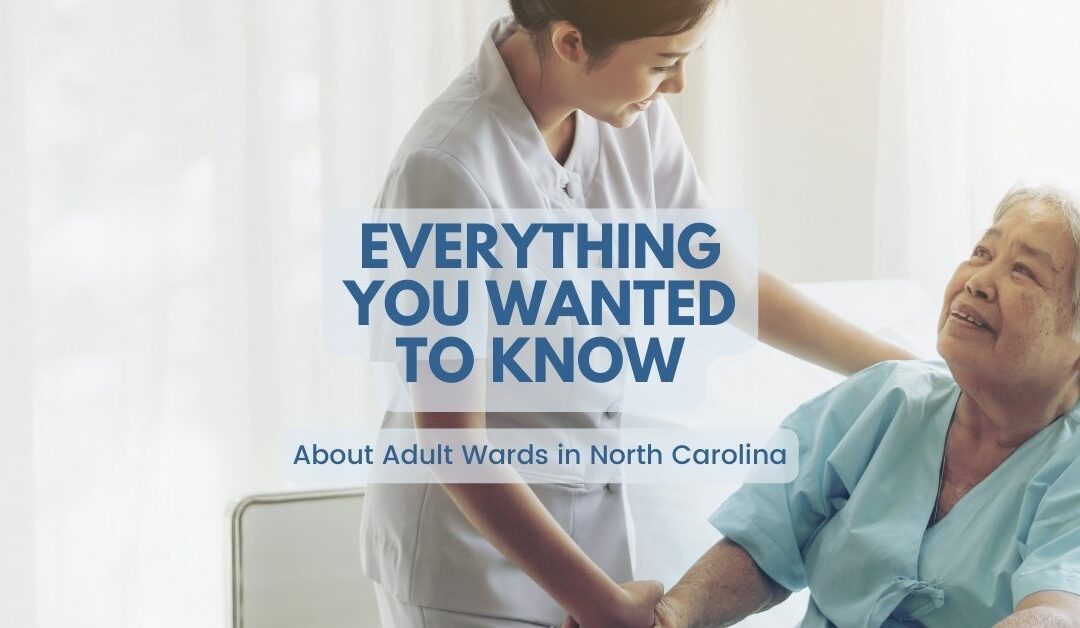In the simplest terms, a ward is someone placed under the guardianship of another person. An adult ward may need a guardian for incompetence caused by mental illness, physical incapacity, or advanced age. While wards have some rights protected by law, their guardian typically oversees their lives to ensure they are safe and healthy. Let’s look at the legal definition for ward and how guardianship works in North Carolina.
How Does an Adult Become a Ward?
According to the NC Courts, the definition of a ward is “an adult who has been adjudicated incompetent or an adult or minor for whom a guardian has been appointed by a court.”
For someone to become a ward, a judge must find them incapacitated or incompetent. They must suffer from a “condition in which a person is incapable of managing their own affairs.”
Once the court determines that a person is incapacitated, the court will appoint a guardian. At this point, the person becomes a “ward.” The person appointed to care for their finances, personal care, or both is the “guardian.”
Who Decides Guardianship for an Adult Ward?
Often, a relative of someone who is struggling to make everyday decisions will want to step in and help. If the individual who needs help does not accept the help or they need more help, the concerned relative may file a petition to have the person declared incompetent. Incompetence is a legal term describing someone who can’t completely care for themselves.
Appointing a guardian begins with a petition filed in the clerk of court’s office in the county where the ward lives. Once someone files a petition, the court sets a hearing date and time. The individual in question, called the “respondent,” must be given notice of the hearing. The respondent has the right to attend and object to the appointment of a guardian. They may also hire an attorney to protect their interests.
The court generally appoints an attorney to investigate what is best for the respondent. This attorney represents the respondent’s best interests in the hearing for the petition for guardianship. They ask questions, such as:
- Does the respondent need a guardianship?
- Is a limited guardianship arrangement best for the respondent?
- Does the respondent need help in their personal everyday life?
- Does the respondent only need help to manage their finances?
- What medical records show their inability to make decisions for themselves?
- Are their witnesses or family members who agree with the petitioner?
The court calls this attorney who stands for the respondent’s best interest the “Guardian Ad Litem.” The Guardian ad Litem gives a recommendation to the court based on their findings in the evidence.
Rights and Responsibilities of Wards
As a ward, you have the right to:
- Be treated with dignity and respect
- Have your privacy respected
- Have access to medical care and treatment
- Receive education and training
- Work and earn income if able
You also have the responsibility to:
- Follow your guardian’s instructions
- Cooperate with medical and mental health professionals who are treating you
Types of Guardianships
There are three main types of guardianships in North Carolina
- Guardian of the Person: Responsible for personal care of the ward, including healthcare decisions, education, and employment
- Guardians of the Estate: Responsible for finances and any real property or financial accounts
- General Guardians. Have the combined responsibilities of both a Guardian of the Estate and a Guardian of the Person.
In addition to these three types, a judge may order a temporary guardianship or a specifically tailored limited guardianship for a ward.
Who Can Be a Guardian?
In North Carolina, anyone over the age of 18 can be a guardian, with some exceptions. A court often appoints a ward’s spouse, adult child, or parent as the guardian. Other relatives, close friends, or professional guardians can also file a petition for incompetence and guardianship and receive an appointment.
Guardian Duties
Becoming a guardian comes with a lot of responsibility. If you’re considering becoming a guardian, it’s essential to understand the basics of this legal arrangement.
Guardianship arrangements protect wards, so it’s crucial that everyone involved understands the ward’s rights and responsibilities. Administrative tasks come with guardianship. The guardian must make decisions for the best interests of the ward. They must also make frequent and well-documented reports to the court about the guardianship.
We Can Help
If you have any questions about wards or guardianship arrangements, please get in touch with our guardianship attorneys at Hopler, Wilms, and Hanna. We would be happy to answer your questions about how guardianship works. As North Carolina Guardian ad Litem attorneys, we also regularly represent wards and understand the finer points of the law surrounding guardianship.
We can represent you at an incompetence or guardianship hearing or help with administrative duties for guardianships. Contact us and find out how we can help.
Sources:

